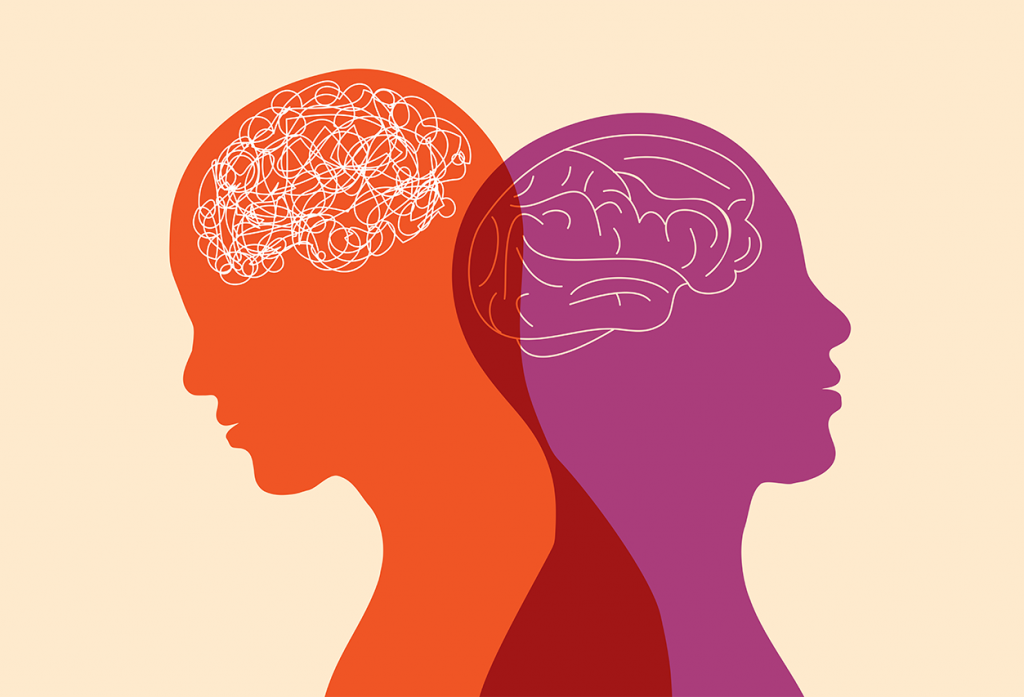Specialized Care at a Trusted Inpatient Mental Health Facility
Specialized Care at a Trusted Inpatient Mental Health Facility
Blog Article
Comprehensive Inpatient Mental Health And Wellness Services for Effective Treatment
Inpatient mental health and wellness services represent a vital element of the healthcare system, offering a extensive and structured atmosphere for people experiencing serious psychological distress. Checking out the subtleties of this continuum reveals significant implications for both specific healing and more comprehensive psychological health outcomes.
Understanding Inpatient Mental Wellness Providers
Inpatient psychological wellness services provide essential support for people experiencing serious emotional distress that can not be handled successfully in an outpatient setup. These services are developed to use an intensive degree of treatment in a structured atmosphere, frequently within a hospital or specialized center. Patients admitted to inpatient programs typically show severe signs and symptoms, such as suicidal ideation, extreme depression, or psychosis, requiring round-the-clock tracking and intervention.
The admission procedure generally entails a thorough assessment by psychological health professionals, that review the individual's mental state, history, and immediate requirements. As soon as admitted, clients involve in a range of restorative modalities customized to their certain needs, consisting of medication administration, private treatment, and group sessions. This all natural technique intends to support the patient's condition, promote safety and security, and foster coping skills.
Inpatient mental wellness solutions not just address immediate health and wellness problems but additionally work as a bridge to continuous treatment. By supplying a controlled atmosphere, these services facilitate the growth of therapy strategies that can be proceeded in outpatient setups, hence making sure a continuum of treatment and enhancing long-lasting end results for individuals with intricate psychological wellness needs.
Key Parts of Effective Therapy
Efficient treatment in inpatient psychological health services consists of numerous crucial components that promote recuperation and stabilization. Primarily, a detailed assessment is necessary to recognize the person's certain demands and obstacles. This assessment notifies the growth of a customized therapy plan, which offers as a roadmap for treatment.
One more important part is the multidisciplinary team strategy. Partnership amongst psychiatrists, psycho therapists, registered nurses, and social employees ensures that different viewpoints contribute to the patient's care, improving the efficiency of treatment. Evidence-based healing techniques, such as cognitive-behavioral therapy (CBT) and dialectical behavior modification (DBT), are likewise essential, giving structured methods that resolve maladaptive thought patterns and behavior concerns.

Lastly, a focus on aftercare planning is critical to make sure a smooth change to outpatient solutions, lessening the risk of regression and promoting lasting wellness. These cumulative parts create an effective therapy framework within inpatient psychological wellness solutions.
Advantages of Comprehensive Care

Thorough care in inpatient psychological wellness solutions offers various benefits that substantially enhance person results. One of the key benefits is the all natural technique to therapy, addressing not only the psychological signs and symptoms however also the physical, social, and psychological demands of individuals. This thorough analysis permits tailored treatments that advertise general well-being.
Another benefit is the combination of multidisciplinary teams, which cultivates collaboration among healthcare professionals. This collaborative atmosphere makes sure that people get coordinated care, decreasing the risk of fragmented treatment and enhancing communication among caregivers. Thorough treatment promotes continuity of solutions, permitting for smooth shifts from inpatient to outpatient settings, which is essential for long-term recovery.

Finally, the structured setting of extensive inpatient care provides a secure space for clients to take part in restorative tasks, aiding them create dealing strategies and resilience. Jointly, these benefits add to more reliable therapy and boosted lifestyle for people experiencing mental health crises.
Evidence-Based Restorative Strategies
In the realm of psychological health therapy, evidence-based healing techniques play a vital role in guaranteeing that clients receive effective and clinically supported treatments. These approaches incorporate the most effective available research with medical experience and client values, cultivating a customized therapy experience that resolves individual needs.
Cognitive Behavior Therapy (CBT) is one of the most commonly acknowledged evidence-based approaches, concentrating on identifying and changing negative thought patterns and habits. This structured technique has actually demonstrated efficacy in dealing with conditions such as anxiety, ptsd, and anxiousness. Similarly, Dialectical Behavior Treatment (DBT) is specifically reliable for individuals with borderline personality condition, useful link emphasizing the growth of emotional policy and interpersonal efficiency abilities.
Furthermore, medicine administration is frequently an important component of evidence-based treatment, as psychotropic medicines can relieve signs and symptoms and improve total performance. Collective care designs, which involve multidisciplinary teams, better improve the efficacy of inpatient services by making sure comprehensive examinations and continuous tracking.
Ultimately, the integration of evidence-based therapeutic methods not only advertises favorable medical results but additionally empowers individuals, cultivating a sense of company and strength in their Read Full Report mental health and wellness trips.
Transitioning to Outpatient Support
The shift from inpatient mental health and wellness services to outpatient assistance notes an important stage in a person's recovery trip. This duration calls for careful preparation and control to ensure continuity of treatment and to alleviate the dangers of relapse or dilemma. Reliable discharge planning should start early in the inpatient keep, entailing a multidisciplinary group that includes psychoanalysts, psychologists, registered nurses, and social employees.
Crucial element of a successful shift include the development of a detailed aftercare plan customized to the person's particular needs. This strategy should lay out follow-up consultations, medicine administration, and therapeutic interventions, as well as determine area resources and support system that can facilitate ongoing recovery.
Moreover, client and household education and learning is crucial throughout this stage. Recognizing the indicators of potential problems and the importance of adhering to therapy can empower people and their support group.
Normal follow-up and review of the outpatient plan are necessary to attend to advancing obstacles. By fostering a collaborative relationship between inpatient and outpatient companies, the possibility of sustained recovery rises, inevitably boosting the person's quality of life and reducing the threat of readmission.

Final Thought
In summary, detailed inpatient psychological health solutions offer a necessary framework for attending to severe emotional distress via a multidisciplinary strategy. Inevitably, such thorough treatment is crucial for lasting psychological wellness and health.
The admission process typically entails a thorough evaluation by mental health and wellness experts, who examine the person's psychological state, background, and prompt demands.Efficient treatment in inpatient mental health and wellness solutions comprises a number of key parts that cultivate recovery and stablizing.Extensive care in inpatient mental health solutions provides numerous benefits that substantially improve person end find more info results.The transition from inpatient psychological health and wellness solutions to outpatient assistance notes an important phase in a client's recovery trip.In recap, comprehensive inpatient mental health solutions supply an essential framework for addressing serious psychological distress through a multidisciplinary strategy.
Report this page